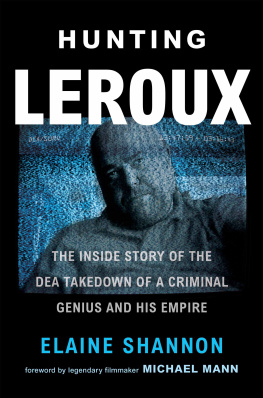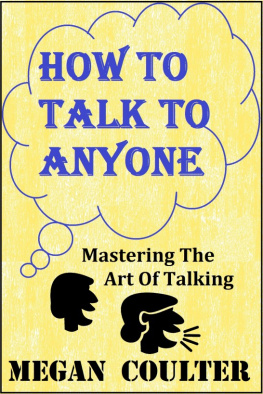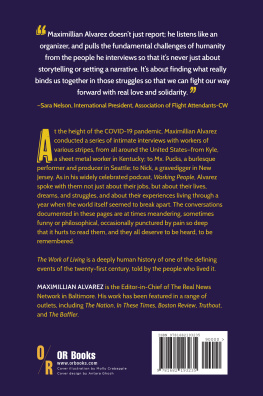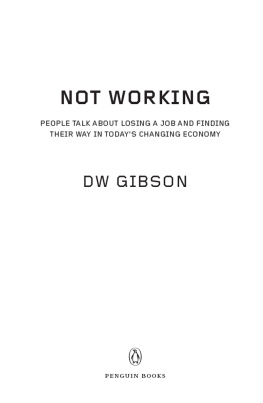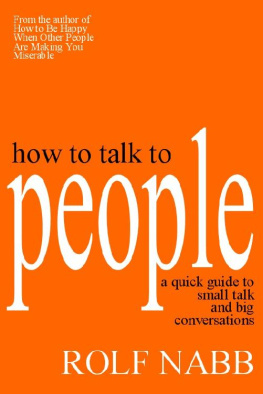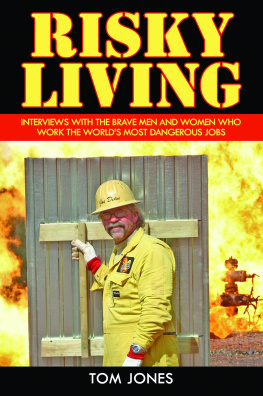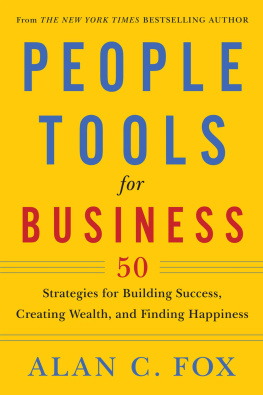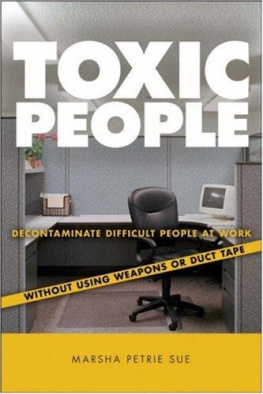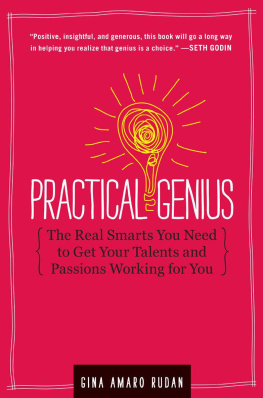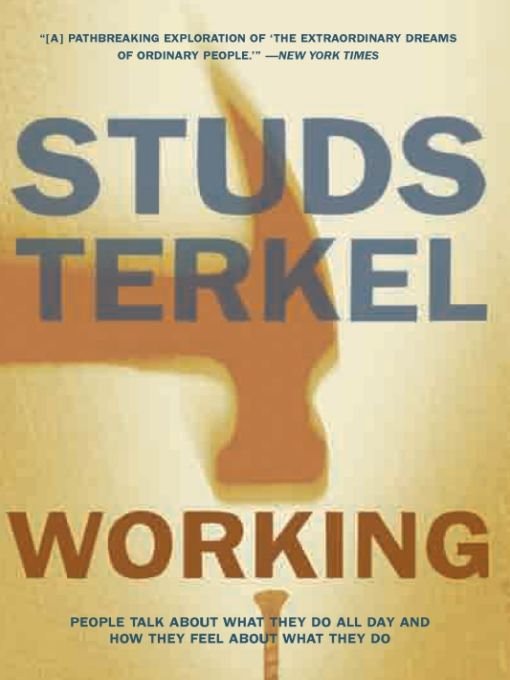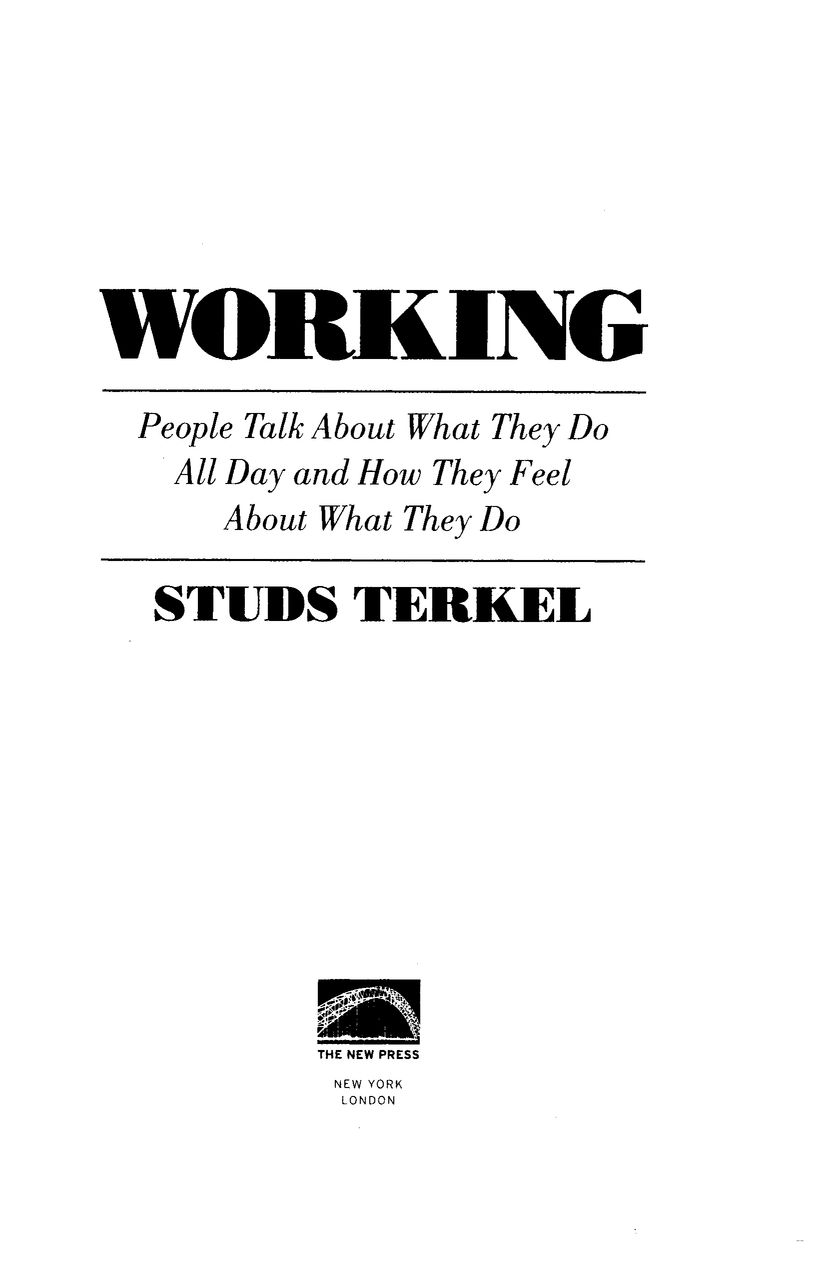Table of Contents
Other Books by Studs Terkel
American Dreams
Lost and Found
Division Street
America
Giants of Jazz
The Good War
An Oral History of World War II
Hard Times
An Oral History of the Great Depression
Hope Dies Last
Keeping the Faith in Troubled Times
My American Century
The Spectator
Talk About Movies and Plays with the People Who Make Them
Talking to Myself
A Memoir of My Times
Will the Circle Be Unbroken?
Reflections on Death, Rebirth, and Hunger for a Faith
For Jude Fawley; for Ida, who shares his vision; for Annie, who didnt.
Acknowledgments
As in two previous works, Division Street: America and Hard Times, my benefactors were friends, acquaintances, and wayfaring strangers. A suggestion, a casual comment, a tip, a hunch: a collective thoughtfulness led to the making of this book.
Among these singularly unselfish scouts were: Marge Abraham, Joe Agrella, Marvin David, Lucy Fairbank, Lou Gilbert, De Witt Gilpin, Bill Gleason, Jake Green, Lois Greenberg, Pete Hamill, Denis Hamill, Noel Meriam, Sam Moore, Bill Moyers, John Mulhall, Bryce Nelson, Patricia OBrien, Jessie Prosten, Al Raby, Kelly Sanders, Florence Scala, Ida Terkel, Anne Thurson, Warren Weaver, Steven Yahn, Beverly Younger, Connie Zonka, and Henry de Zutter.
For the third time, Cathy Zmuda transcribed hundreds of thousands of spoken wordsperhaps millions in this instanceonto pages that sprang to life. Her constant good humor and perceptiveness were as rewarding to me as her astonishing technique. Nellie Giffords acute observations as a volunteer editor, at a time the manuscript was really gargantuan, helped immeasurably in cutting the lean from the fat. A perspective was offered by both that might otherwise have been missing.
My gratitude, too, to Nan Hardin, for her generosity of time and spirit, as a knowing guide during a memorable trip through Indiana and eastern Kentucky. My colleagues at radio station WFMT, notably Ray Nordstrand, Norman Pellegrini, and Lois Baum, were once again remarkably understanding and ingenious during my prolonged leaves of absence. I know I gave them a hard time, but theirs was truly grace under pressure.
Especially am I grateful to my editor, Andr Schiffrin, whose idea this was, as twice before. His insistence and quiet encouragement, especially during recurring moments of self-doubt, are evident in all these pages. And to his nimble associates, Myriam Portnoy and Dian Smith, for their bright-eyed look at what was becoming burdensome mattera salute.
Every mans work shall be made manifest: for the day shall declare it, because it shall be revealed by fire; and the fire shall try every mans work of what sort it is.
I Corinthians 3:13
You cant eat for eight hours a day nor drink for eight hours a day nor make love for eight hours a dayall you can do for eight hours is work. Which is the reason why man makes himself and everybody else so miserable and unhappy.
William Faulkner
The work ethic holds that labor is good in itself; that a man or woman becomes a better person by virtue of the act of working. Americas competitive spirit, the work ethic of this people, is alive and well on Labor Day, 1971.
Richard M. Nixon
I like my job and am good at it, but it sure grinds me down sometimes, and the last thing I need to take home is a headache.
TV commercial for Anacin
FOREWORD
Babe Secoli, a supermarket checker for nearly thirty years, is proud of her dexterity in moving items along the conveyor belt. If asked, she will do a little dance, showing how she hits the keys on the cash register with one hand, pushes the food along with the other and intermittently whacks the conveyor-belt button with her hip. She knows what everything coststhe price list on the register is, she says, only for the part-time girl. Almost everything amuses her, especially the rich ladies who drop in to shoplift meat. Im a couple of days away, she says, Im very lonesome for this place.
Ms. Secolis is one of the dozens of throaty, acerbic voices in Working, Studs Terkels oral history of working life, which was published thirty years ago this spring. When it appeared, Working was a revelation, a window on the thoughts of Americans who were rarely heard from: hospital aides, skycaps, gravediggers. Many of the interviews follow a similar, surprising trajectory, beginning with mundane workplace details but quickly moving on to existential thoughts. Even for the lowliest laborers, Mr. Terkel found, work was a search, sometimes successful, sometimes not, for daily meaning as well as daily bread.
The oral histories in Working are wistful dispatches from a distant era. The early. 1970s were the waning days of the old economy, when modern management practices and computers were just beginning to transform the American workplace. In the last thirty years, productivity has soared, but job satisfaction has plummeted. It is hard to read Working without thinking about what has gone wrong in the workplace.
Mr. Terkels ragtag collection of little-guy monologues was a runaway bestseller. Part of its appeal was the unusual, occasionally illicit glimpses it offered into the ways of the world. If you work nights and its real quiet, I dont think theres an operator who hasnt listened in on calls, a switchboard operator says. The night goes faster. A gas-meter reader tells of the codes meter men put on customer cards when there was an attractive woman in the house.
Mr. Terkels interlocutors also offer deeper insights. A parking lot attendant holds forth on why working people are better tippers than Cadillac drivers. A prostitute reflects that she was the kind of hustler who received money for favors granted, not the kind who signs a lifetime contract for her trick, or who carefully reads womens magazines and learns what it is proper to give for each date, depending on how much... [he] spends on her.
It is striking how many of Mr. Terkels subjects have found the meaning he says they are looking for. Obviously I dont make much money, a bookbinder says, but she still loves repairing old books because a book is a life. A gravedigger recalls how impressed a visiting sewer digger was with his neat lines and square edges. A human body is goin into this grave, he says proudly. Thats why you need skill when youre gonna dig a grave.
There are disgruntled workers in Working who feel caged in by their jobs, but many others exult in their ability to demonstrate their competence, to show off their personality and to perform. When I put the plate down, you dont hear a sound, a waitress says. If I drop a fork, there is a certain way I pick it up. I know they can see how delicately I do it. Im on stage.
The 1970s were a slower age, and much of the workers pleasure in their jobs is related to the less-demanding time clock. A hospital billing agent can take time off from dunning patients to look in on a man whose leg was amputated, who has no one to care for him. If hes going to live in a third-floor flat and he doesnt have anybody home, this bothers me, she says. A stewardess says she is supposed to spend a half-hour on a Boston to Los Angeles flight socializing with passengers.





